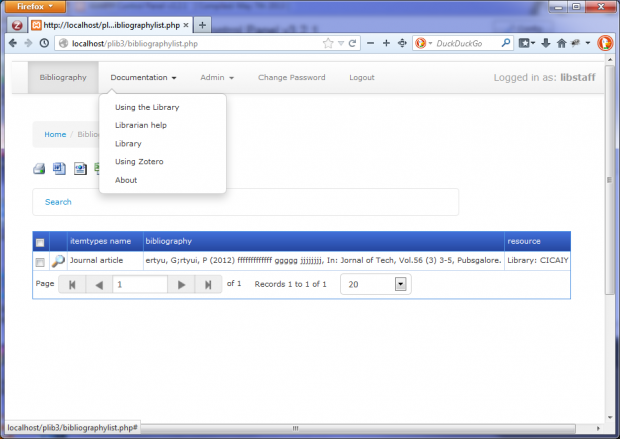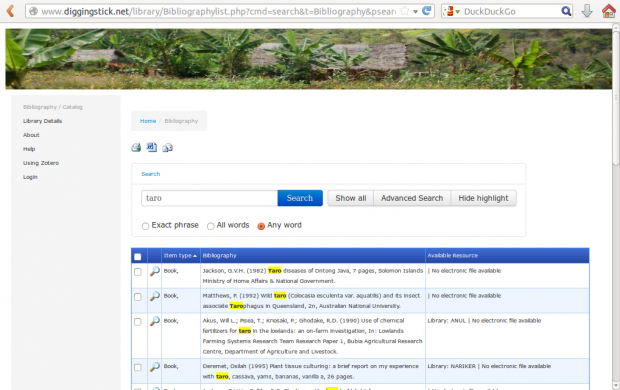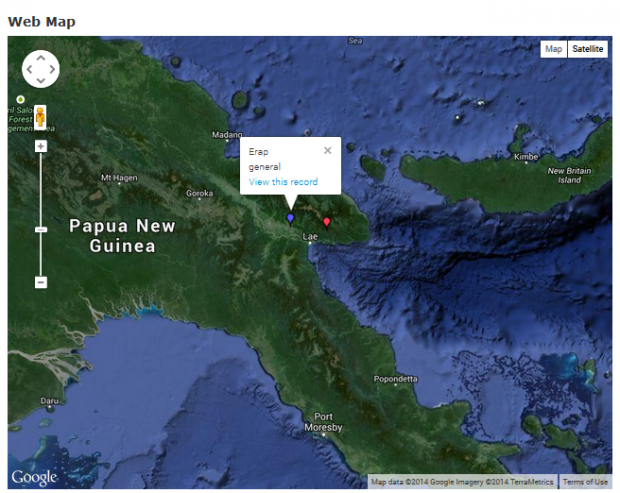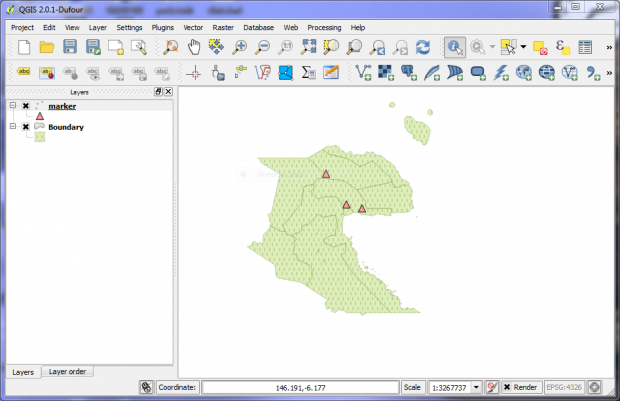Version 2 citation friendly bibliography database
Version 2 of the online library is now well on the way. with a fully functional framework in place for testing. This update has implemented a completely new backend, based on the PostgreSQL database, a new interface with popup previews, and a number of other new features and improvements. The attached images give a preview of the things to come, albeit showing "dummy" test framework data. The library component of the version 2 development version can be seen here.
Creating a citation friendly bibliography database
2013 gave me an interesting and challenging few months learning and building an online reference / bibliographic database (mainly in my spare time). I had some basic criteria: low cost, easy to learn and use, easily able to import and export data, library standards compliant, zotero friendly, incorporate basic libray functions, provide full text access, submission queues, and allow multiple user access with differential security levels. First I looked at "off the shelf" products and of a multitude of these, Refbase, EPrints, and Koha stood out as candidates. I really liked Refbase, and it ticked most of the boxes, especially with regard to citation, but sadly, lacked flexibility in fields and library functions and needed extra steps to convert our spreadsheet based data for import. Similarly, EPrints did not stand up to the reputation. Koha, on the other hand, is a full blown integrated library system. It ticked all boxes except for ease of use and import of data...and ease of adding uploaded "full text" files. In the end, it was possibly too comprehensive, and while much effort was spent in migrating to the MARC standard, the difficulties in handling multiple authors in a Zotero friendly way, led me to look at an alternate path.
I had been reluctant to build a system from scratch, as even though it would give the flexibility we needed, the need to build in metadata harvesting by Zotero was a whole new learning curve! Take a look at the end product - a fully functional copy of the system (without the full text attachments) is available here on Digging Stick.
Building a Google Maps Application with PostgreSQL
How to save points from Google maps in a PostgreSQL database. This has been adapted from 2 articles for MySQL, referenced from The Google Geo Developers Blog - New Articles: Powering Maps API v3 Apps with MySQL
"Using PHP/MySQL with Google Maps" shows how to pull data from a SQL database as XML and display that on the map.
"From InfoWindows to a Database: Saving User-Added Form Data" shows you how to enable users to add geo-tagged information to a database via your map application.
Migrating this to PostgreSQL was worth the effort as it opened opportunities to integrate the Google Maps application with PostGIS. See Google Maps (API 3) application and related story: Getting Productive With QGIS, Postgresql, PostGIS, and Google maps
The following code snippets give examples of the PostgreSQL adapted code - no other changes are needed from the referenced articles. Learn more about this in our online training module - Getting Productive with (Q)GIS
Getting Productive With QGIS, Postgresql, PostGIS, and Google maps
QGIS is a great GIS program.... and free .... and open source ,,,, and cross platform .... and ....
Besides the inbuilt capabilities, its extensibility through plugins makes it a very powerful tool. - Having not used the system before, I wanted to give it a test to see if it could stand up to the claims and how easily it could do the tasks I needed. - While QGIS has several ways to achieve a similar result, including direct incorporation of Google and other maps providers with the 'Openlayers' plugin, the first test was to take points captured (in an external Postgresql database) from Google Maps, and add these points as a PostGIS layer in QGIS.
Bottom line: I am impressed !
- 1
- 2




